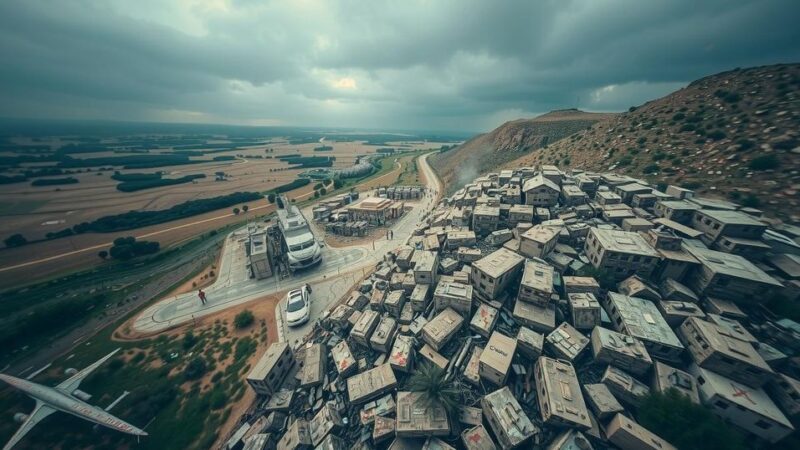Brazil and Argentina have signed a Memorandum of Understanding to explore natural gas exports from Argentina’s Vaca Muerta, potentially reaching 30 million cubic meters per day by 2030. The agreement establishes a working group to identify measures and routes for gas supply, as Brazil seeks to meet increasing domestic gas demand.
In a significant development, Brazil and Argentina have established a Memorandum of Understanding (MOU) aimed at advancing the infrastructure required for exporting natural gas from Argentina’s Vaca Muerta formation to Brazil. According to reports, this agreement is designed to meet the increasing gas demand in Brazil, with projections indicating potential imports reaching up to 30 million cubic meters per day (mcm/d) by the year 2030. The MOU initiates the formation of a working group tasked with evaluating the necessary steps to facilitate the gas supply from Argentina, particularly focusing on tapping into the Vaca Muerta formation, which is recognized as the world’s second-largest shale gas reserve. The Argentine state oil company, YPF, is spearheading the development efforts in Vaca Muerta, with aspirations of positioning Argentina as a significant energy exporter. The working group will be assessing possible gas transportation routes to Brazil, including the option of reversing the flow of the existing Bolivian pipeline, as well as considering pathways through Paraguay and Uruguay. Moreover, a direct connection point in Uruguaiana, a Brazilian city adjacent to Argentina, will also be reviewed. Brazil, known as the largest crude oil producer in Latin America, is currently facing challenges in fulfilling its domestic gas requirements, thereby prioritizing this initiative under the leadership of President Luiz Inacio Lula da Silva. In alignment with this initiative, Vista Energy has announced plans to invest approximately $1.1 billion (21.97 billion pesos) to bolster its operations in Vaca Muerta this year, concentrating on enhancing production capabilities while driving down costs. The rapid expansion of the Vaca Muerta formation has positioned it as one of the largest shale reserves globally, second only to the United States.
The recent agreement between Brazil and Argentina marks a pivotal moment in energy collaboration within South America. The MOU serves as a framework to bolster natural gas exports from Argentina’s Vaca Muerta shale formation, which is vital not only for enhancing regional energy security but also for meeting Brazil’s increasing energy needs. Vaca Muerta stands out as a key asset, containing extensive reserves that can help alleviate Brazil’s reliance on external sources of natural gas, particularly as domestic production levels struggle to keep pace with demand.
The signing of the MOU between Brazil and Argentina signifies a strategic partnership aimed at optimizing natural gas supply through the utilization of Argentina’s Vaca Muerta shale formation. By establishing a dedicated working group and exploring potential transportation routes, both countries are positioning themselves to effectively address Brazil’s growing gas requirements. This collaboration not only promises to bolster energy exports from Argentina but also represents a crucial step toward enhancing regional energy cooperation and stability in South America.
Original Source: www.offshore-technology.com




